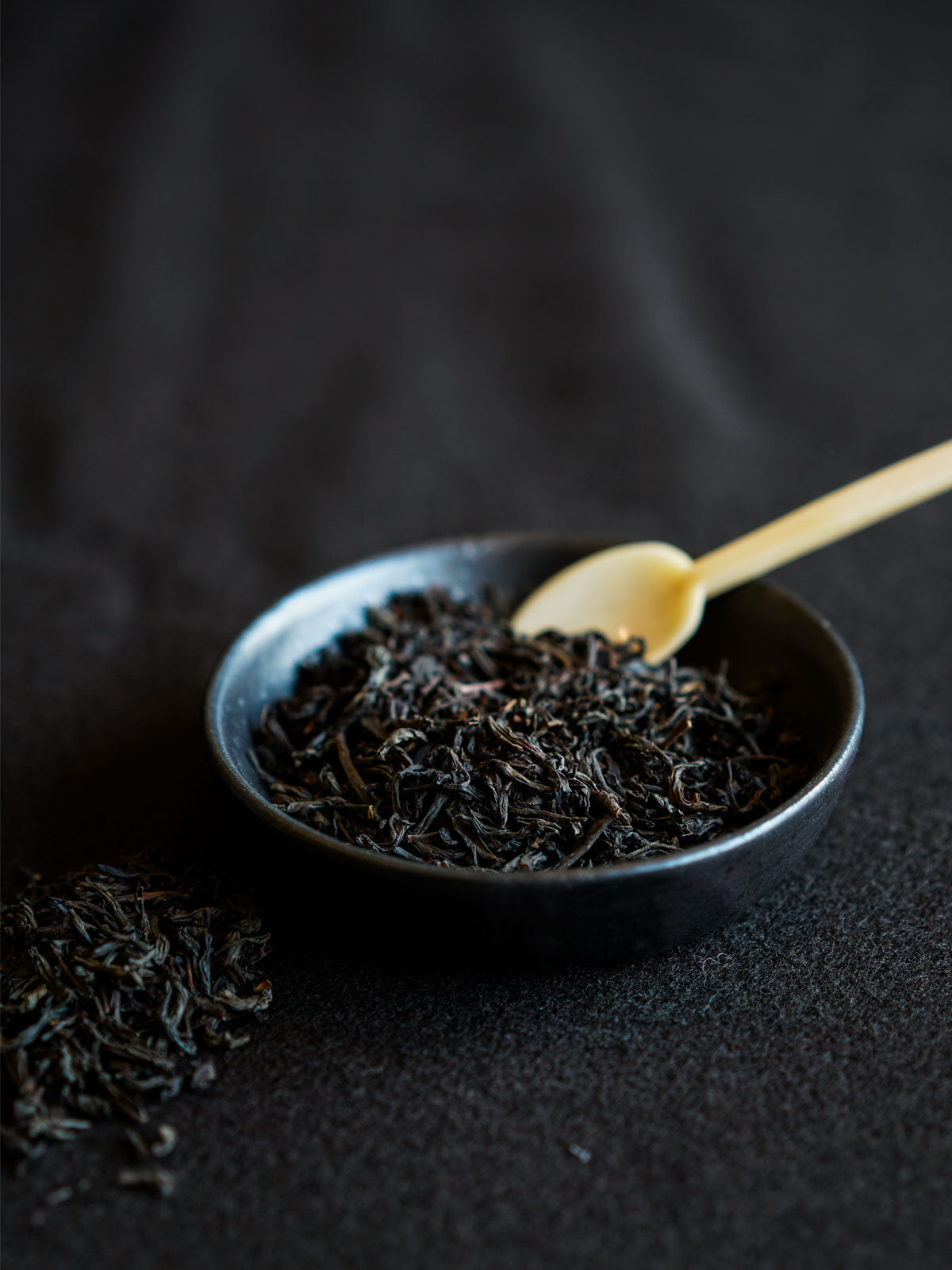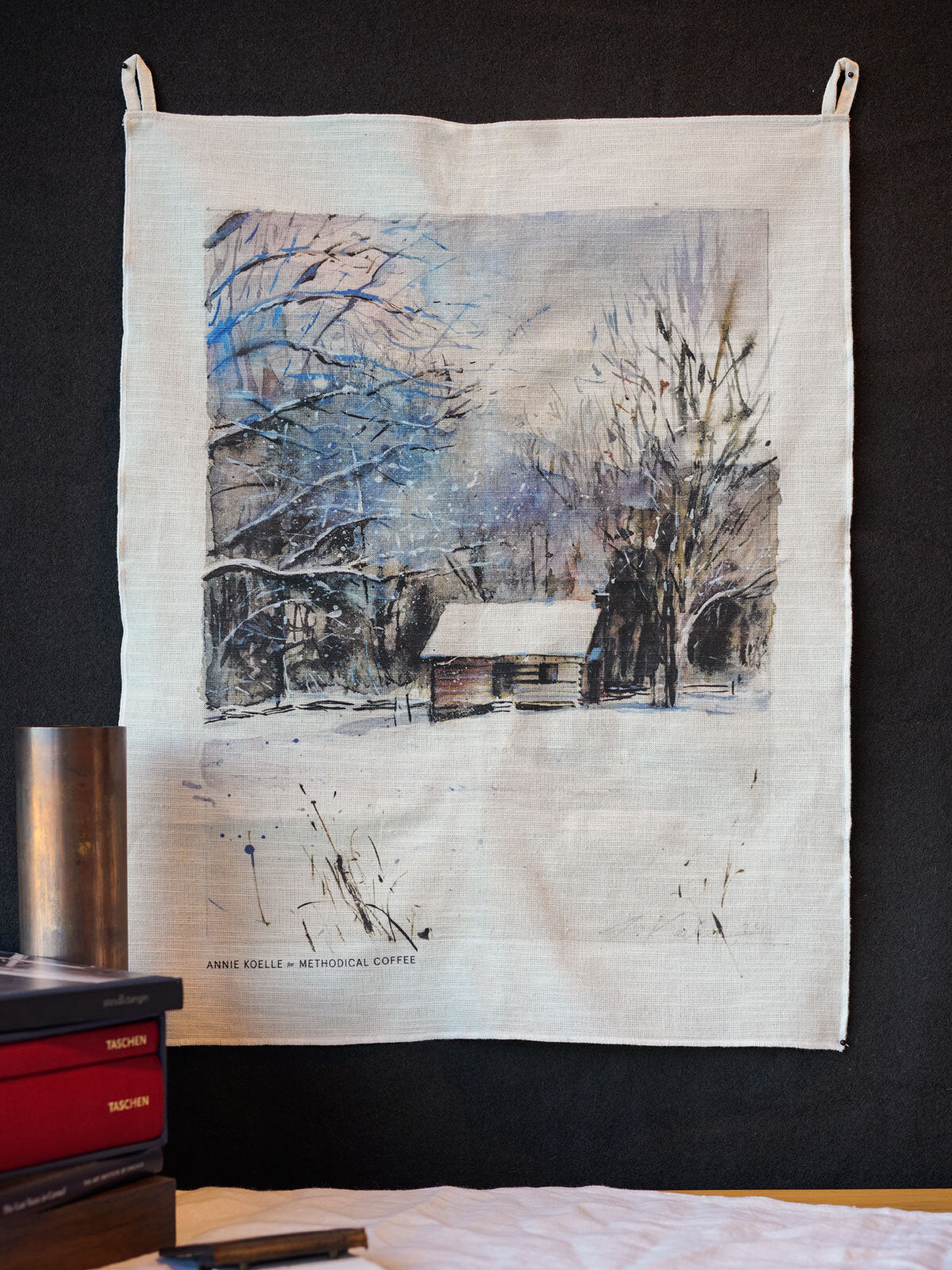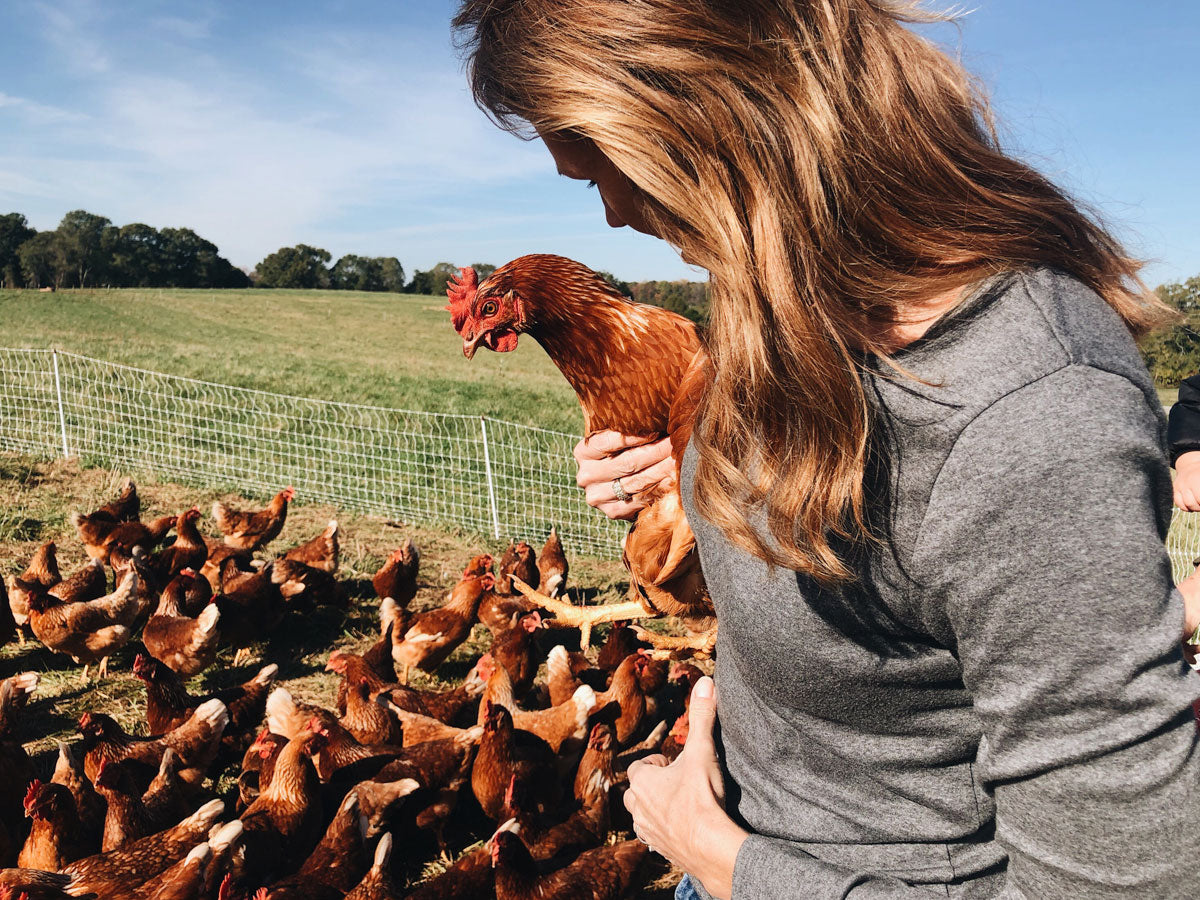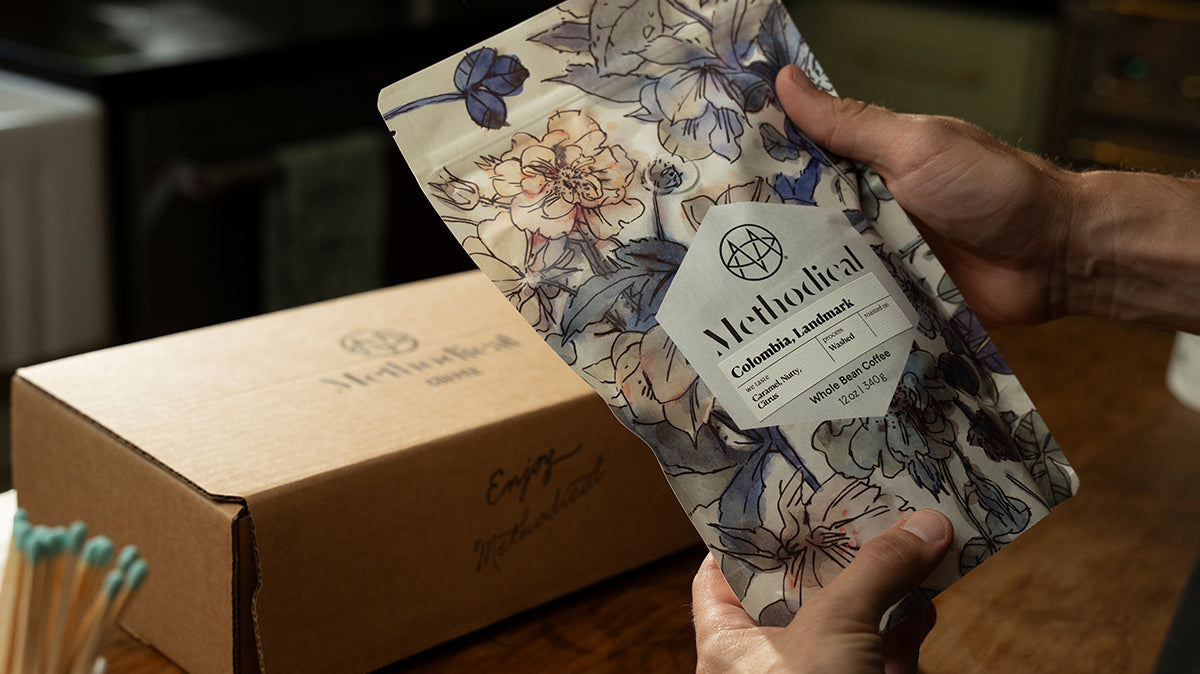Colleen Snow wears a near-permanent smile as she plods through the pastures at Providence Farm. Her golden retriever, Molly, is making close circles around us as we traverse a wide field out to a semi-permanent chicken run. “Chicken city,” as Colleen calls it. It’s a large, moveable pen that contains over 500 Golden Comet chickens. “They’re prolific egg-layers, and they lay about an egg a day each.” When their two-year window of laying is up, Providence sells them to neighboring communities who primarily use them as meat birds. It’s a slight but cogent snapshot of what Colleen and Donald Snow are accomplishing here – a working farm with an emphasis on sustainability, community, and the land.

Colleen picks up a chicken, stroking it’s ruddy feathers as she recounts she and her husband Donald’s seven years as first-generation farmers. They started out with 3 cows, rotating them between 4 leased properties, miles apart. “It’s what we had, it’s what we could afford. We were starting from scratch. Borrowing tractors and trailers. Donald would load up cattle to rotate pastures.” Five years passed as they grew their herd and their business. “We were growing and had more demand, but we were being stretched really thin.” They knew something had to change. Then, in the same week that Colleen felt called to leave her 10-year career at Newspring Church for full-time farm work, the Snows received a phone call. It was Dr. Bill Walker of Walker Century Farms. What resulted was a partnership with a 100+-year-old farm that has grown Providence’s community, resources, and business.
“Everything starts with the ground,” Colleen says. They are, without question, a farm with a focus on building and serving community, but even the foundations of a heart-led farm initiative begin in the dirt. When their herd began to grow as business took off, Donald looked at the $5,000 worth of chicken litter that he was fertilizing the pastures with and thought “why don’t we just buy chickens and let them fertilize.” The addition of chickens proved to be useful in more ways, too. “They go behind the cows and break up cow patties, which helps save the grass.” With the chickens’ nitrogen-rich droppings and their inherent inclination to scratch and dig, they provide a wealth of natural care for the all-important food source of the cattle. Not to mention, eggs.

Providence sells about 200-300 dozen eggs per week. As Colleen says, “it can be hard to keep up with but we do our best… and we are always working to be more efficient.” They provide free-range, farm-fresh eggs to us at Methodical, and meat and eggs to several other local restaurants. It’s clear that these relationships are what is really important to Colleen. “I felt like I wanted a space to take care of people in ministry… what better way to do that than through their food.” It’s her goal to work alongside restaurants, beginning with the vision they have and going from there. “This has given us such a great opportunity to love people... We start out eating in a restaurant. How’s the food, the service, the atmosphere.” Colleen has found that the food and the people serving it say a lot about the values of a restaurant, and she wants to align with those values. “We don’t just go in, drop meat, and leave. We love to connect with people; we love when people get to connect with their food.”
The sky above Providence farm is unbelievably big and clear, blotted with autumn clouds. The wind blows just enough to make the grasses rise and fall like ocean waves across the pastures. Colleen unlocks a gate to take us up to where the cows are grazing this week. I thank her again for this time and ask what else needs to be done when we leave today. “Nothing for me – it’s my day off!” She smiles, taking care of her guests with the same fervor she gives to her farm, even on her day off.
Written by Angie Thompson













